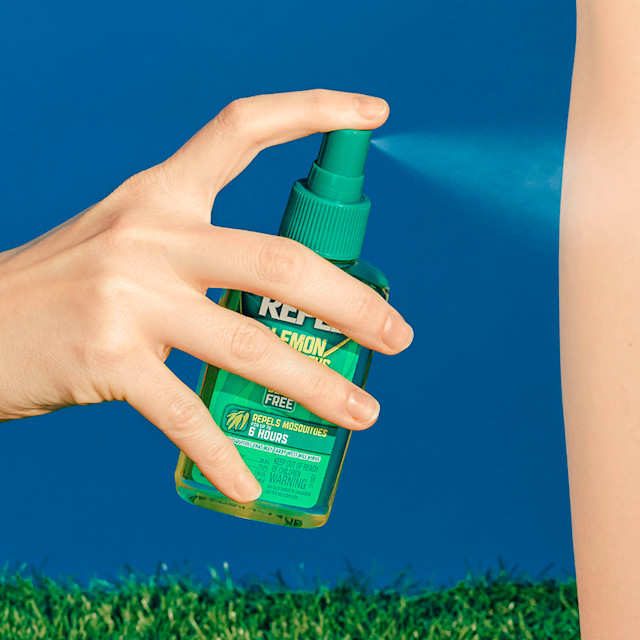If you want to avoid chemicals, try this.
The gist:
People often try to avoid DEET, an active ingredient in almost every conventional bug spray, because of claims that it can cause rashes and damage the nervous system. These claims have been debunked, but people who want to steer clear of DEET and potential irritants can stay bite-free with a natural alternative.
Expert insight:
Yes, DEET can cause rashes and damage the nervous system—but only caused if you abuse insect repellents (using them more often or heavily than recommended on the label) or inhale unrealistic amounts, per the studies.
There’s an exception: Sprays may cause irritation for people with sensitive skin, says Debra Jaliman, MD, a New York City-based dermatologist. But even if they do, DEET often isn’t the culprit; many products contain other potential irritants like preservatives and fragrances that don’t need to be listed on the packaging.
If you want to nix your exposure to these irritants, lemon eucalyptus oil-based options are easier on the skin and just as effective as conventional products at keeping mosquitoes at bay, explains Immo Hansen, principal investigator of New Mexico State University’s The Hansen Lab, where the research focuses on disease-transmitting mosquitoes.
The bottom line:
Always apply bug spray after sunscreen to make sure it sticks, Jaliman says. If you opt for a DEET-based product, make sure the chemical comprises no more than 30 percent of the formula (a stat listed on the bottle), she adds. A higher potency is more likely to lead to a rash in sensitive skin.
